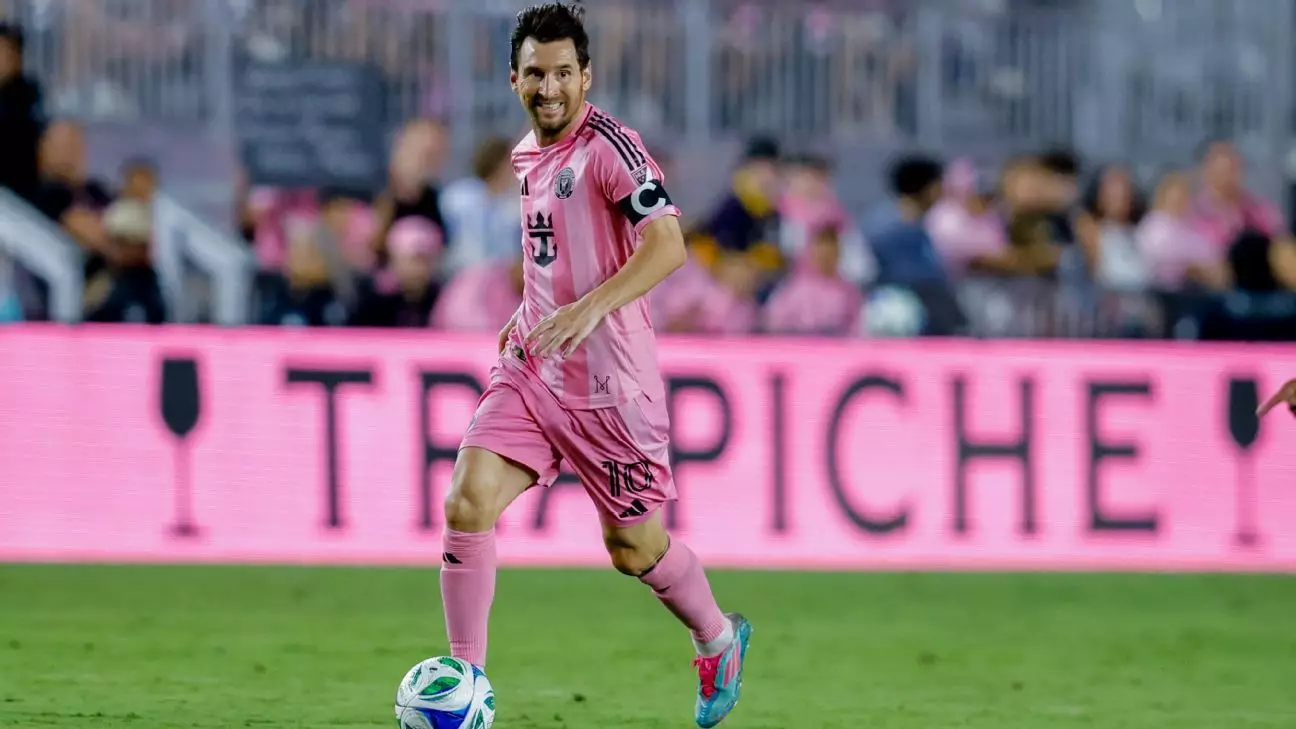Major League Soccer (MLS) has experienced a tumultuous journey since its inception three decades ago, navigating various highs and lows, particularly in the international arena. Its track record in global competitions offers little in the way of reassurance, with only three continental titles claimed by MLS teams: D.C. United, LA Galaxy, and the Seattle Sounders. The disheartening figures paint a stark picture — while the league celebrated moments of triumph, recent episodes, such as the Vancouver Whitecaps’ humiliating 5-0 defeat to Cruz Azul in the Concacaf Champions Cup, have raised significant questions about the league’s stature and capability on a larger platform. With the impending FIFA Club World Cup set to spotlight MLS clubs, the concern mounts: Is this league equipped with the talent and experience to thrive, or are they merely setting themselves up for a continuation of historical disappointments?
The Diminishing Gap: MLS Teams on the Rise
While MLS may lack a robust record in international competitions, a recent trend showcases why the tide may be turning for the league. A growing presence of MLS clubs in the finals of prestigious tournaments is notable; six out of the last eight Concacaf Champions Cup finals have featured teams from the league. The recent performance of the Seattle Sounders, who managed to secure their first Champions League title against Liga MX opposition, illustrates potential growth in competitiveness. However, a stark reality emerges when contrasting the financial resources and depth of teams like Cruz Azul with those of MLS franchises like the Whitecaps. With a staggering market value disparity, it’s not just about individual talent; it’s also about the collective resources that translate to superior performance on the field.
The Club World Cup: A Marquee Challenge
As the MLS clubs prepare for the FIFA Club World Cup, they face a daunting challenge. Competing against stalwarts from Europe and South America, they must confront not only a skill gap but also a psychological one. The excitement surrounding this marquee event has escalated expectations for clubs like Inter Miami, LAFC, and Seattle Sounders. Particularly with Inter Miami boasting star power like Lionel Messi, the pressure intensifies exponentially. Yet head coach Javier Mascherano’s candid acknowledgment of the league’s limitations highlights a duality — the aspiration of glory tempered by a grounded understanding of their current standing. The question remains: Can they leverage the name recognition of players like Messi to bolster their standings, or will they succumb to the inevitable reality when pitted against the world’s elite?
Rethinking MLS’s International Identity
In the realm of football discussions, the “retirement league” label has plagued MLS, often dismissed as a destination for aging players. However, this narrative is overshadowed by the league’s emerging identity as a lucrative market for talent to hone their skills before transitioning to higher echelons. It’s significant that MLS hosted 30 outbound player transfers last winter, suggesting a shift toward being a breeding ground for future stars rather than a mere haven for those winding down their careers. The recent influx of high-profile players signifies a potential transformation in the perception of league quality. The Club World Cup offers an unparalleled platform for MLS teams to dismantle this dated stereotype.
A Resilient Future?
With the complex relationship between perception and reality, success at the Club World Cup could profoundly alter the narrative surrounding MLS. The league’s representatives will need to embark on more than just functional performances; they must encapsulate tenacity and resilience. For teams like LAFC and Inter Miami, moving past the group stage may seem daunting but is certainly within reach. Upsetting global powerhouses, or at the very least, earning respect through competitive performances, can initiate a much-needed shift in public sentiment and marketing potential.
This is not merely about winning; it’s indispensable for MLS to deliver performances that resonate with fans both domestically and internationally. Recognizing the significance of the moment fosters a sense of urgency among players and coaching staff alike. Proving their mettle against their rivals could elevate the league far beyond a casual football destination, beckoning a new identity that champions competitiveness. The stakes in this upcoming tournament lie not just in outcomes; they rest on redefining MLS’s narrative for years to come. As teams like the Sounders face incredibly complex odds in their group, the potential for an upset could serve as a catalyst for reshaping how the world perceives soccer in North America.
Through this transformative lens, all eyes will be watching; the time has come for MLS to step out of the shadows and engage wholeheartedly with the global football narrative.

